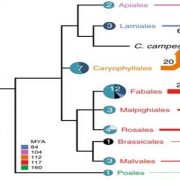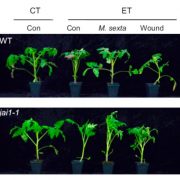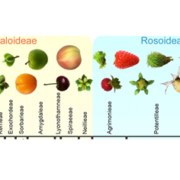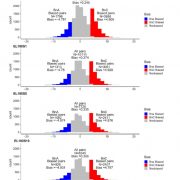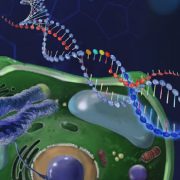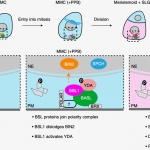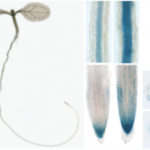Give and Take: Lipid exchanges drove the evolution of mutualism during plant terrestrialization (Science)
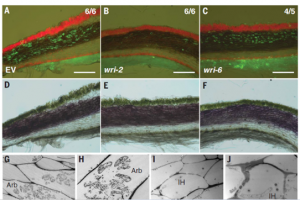 Plants form symbiotic associations with a variety of microbial partners, among which arbuscular mycorrhizal fungi (AMF) are prominent. AMF are known to enrich plants with a host of vital nutrients including the essential macronutrient phosphorus. While the finer details of plant-AMF association are known in angiosperms, those in bryophytes remain less well resolved. Rich and co-workers have now found transfer of lipids from the bryophyte Marchantia paleacea to the AMF Rhizphagus irregularis as a vital aspect of the evolution of this symbiosis. RNA sequencing of AMF-inoculated host plant samples indicated a role for lipid biosynthesis, which is conserved across land plants that share symbiosis with AMF. The authors manipulated the host lipid synthesis machinery to produce a unique lipid molecule that was detected in both the host as well as the fungal partner, in agreement with the lipid transfer hypothesis. Finally, the authors identified the lone member of WRINKLED (WRI) family of transcription factors in M. paleacea as necessary for this lipid biosynthesis and transfer, mutation in which rendered the AMF unable to form arbuscules inside the plant cells. Together, these results throw light on the hitherto unknown origins of the evolution of plant-AMF mutualism and their possible roles in terrestrialization of land plants. (Summary by Pavithran Narayanan @pavi_narayanan). Science. 10.1126/science.abg0929
Plants form symbiotic associations with a variety of microbial partners, among which arbuscular mycorrhizal fungi (AMF) are prominent. AMF are known to enrich plants with a host of vital nutrients including the essential macronutrient phosphorus. While the finer details of plant-AMF association are known in angiosperms, those in bryophytes remain less well resolved. Rich and co-workers have now found transfer of lipids from the bryophyte Marchantia paleacea to the AMF Rhizphagus irregularis as a vital aspect of the evolution of this symbiosis. RNA sequencing of AMF-inoculated host plant samples indicated a role for lipid biosynthesis, which is conserved across land plants that share symbiosis with AMF. The authors manipulated the host lipid synthesis machinery to produce a unique lipid molecule that was detected in both the host as well as the fungal partner, in agreement with the lipid transfer hypothesis. Finally, the authors identified the lone member of WRINKLED (WRI) family of transcription factors in M. paleacea as necessary for this lipid biosynthesis and transfer, mutation in which rendered the AMF unable to form arbuscules inside the plant cells. Together, these results throw light on the hitherto unknown origins of the evolution of plant-AMF mutualism and their possible roles in terrestrialization of land plants. (Summary by Pavithran Narayanan @pavi_narayanan). Science. 10.1126/science.abg0929



